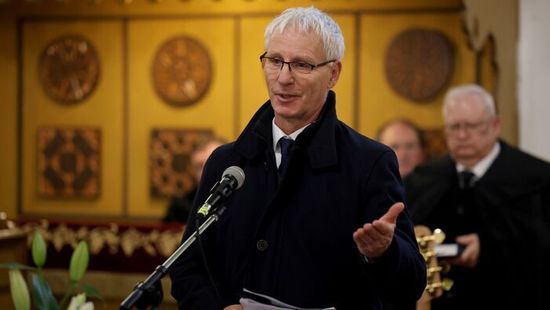Sympathizers protesting peacefully in support of Räsänen stood in front of the Helsinki District Court on Monday morning. The few dozen demonstrators had signs in various languages that wrote: “Päivi, we stand by you!”
A Finnish woman who had lived in Budapest for seven years held the Hungarian sign. She said that Räsänen should not be convicted because she expressed her religious views – this goes against Finnish values.
The accused arrived in the courtroom with her head held high, where she met with the press. She patiently answered all questions with a constant yet fragile smile. In answer to Magyar Nemzet’s question, Räsänen said:
She feels calm and confident she will win the lawsuit.
She said she regrets nothing and she will not take back any of her statements because everything she said was based on the Bible and her faith.
The politician will continue to stand up for freedom of expression and religion. No ruling will change that. She highlighted that
The Budapest demonstration on Sunday meant a lot to her; 3,000 people went to support her cause. She is extremely thankful for the Hungarian people.

The attorney general delivered her closing remarks first after the four-hour trial. Once again, similarly to her January speech in the trials, Anu Mantila detailed why she considers Räsänen’s statements a hate crime against homosexuals: her 2019 Tweets, in which she quoted the apostle Paul; her public radio discussion where she said that marriage is between a man and woman; and her religious pamphlet written in 2004 claiming that homosexual relations are contrary to God’s will.
According to the accusation, Räsänen cannot hide her hateful comments behind freedom of speech and religion; her religious beliefs should be kept to herself, this should not be public.
The attorney general believes that the state should intervene in every case of hate speech because if they stand against these groups, individuals will not be able to stand out alone. Even if for religious reasons, it is unacceptable to label homosexuals sinful; religious statements must also comply with legal requirements and non-discrimination.























Szóljon hozzá!
Jelenleg csak a hozzászólások egy kis részét látja. Hozzászóláshoz és a további kommentek megtekintéséhez lépjen be, vagy regisztráljon!